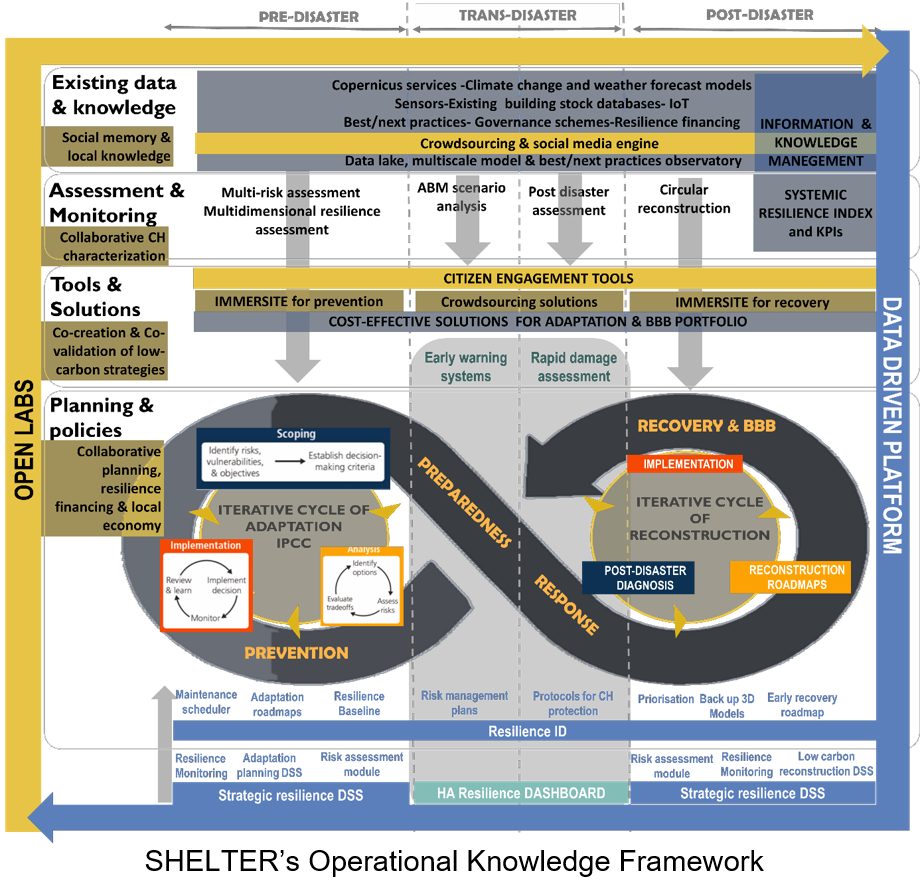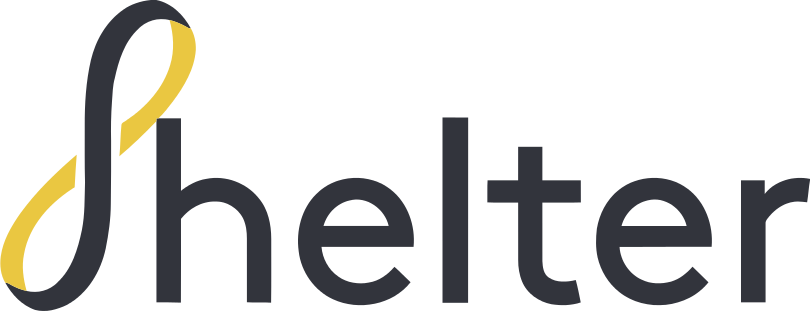Project facts
Presentation
SHELTER aims at developing a data driven and community-based knowledge framework that will bring together the scientific community and heritage managers with the objective of increasing resilience, reducing vulnerability and promoting better and safer reconstruction in historic areas. This project has received funding from the European Union's Horizon 2020 research and innovation programme under grant agreement No 821282.
The first step to enhance resilience is associated to the improvement in understanding the direct and indirect impacts of climatic and environmental changes and natural hazards on historic sites and buildings, by linking concepts commonly used in disaster risk management and climate change adaptation with cultural heritage management, in order to provide inclusive and informed decision-making. Comprehensive disaster risk management plans need to be drawn up, based on the specific characteristics of cultural heritage and the nature of the hazards within a regional context, taking into account the diverse heritage typologies as well as the specific socioeconomic conditions, since this directly affect the vulnerability of such systems.
SHELTER Operational Knowledge Framework will be based on a matrix acting as a canvas for the project developments first and as guideline for replication in other cities. Therefore, this framework is the result of the intersection between the four Disaster Risk Management phases (i.e., prevention, preparedness, response and recovery including reconstruction) and the tools and mechanisms that support the resilience building in Historic Areas (i.e., existing data and knowledge operationalization, assessment and monitoring framework, tools and solutions development and collaborative planning).

The operational knowledge framework will be articulated around two interfaces that will support, shape and contextualize all the process evolving together adapting to each Historic Area:
- The tailored and inclusive resilience Open Labs implementing the community-based approach; and
- The modular and scalable data driven platform for knowledge management.
Both, they will drive adaptation strategies and DRM in all the phases, by providing objective and consistent information for evidence based decision-making combined with local knowledge and co-creation strategies.
Impacts & Results
By a deep understanding of the hazard, the exposure and the vulnerability of the historic area, the local dynamics and the provision of innovative governance and community based models, it is possible to provide useful methodologies, tools and strategies to enhance resilience and secure sustainable reconstruction.
SHELTER will enhance the resilience and reduce the vulnerability of Historic Areas to climate change and other natural hazards, through an operative knowledge framework that will both increase the robustness of the system and reduce the time of recovery and restauration, providing the necessary information for planning and adaptive governance.
All the developments of the project will be validated in 5 Open Labs, established in cooperation with local stakeholders, that are representative of main climatic and environmental challenges in Europe and of different heritage’s typologies, i.e.:
- 3 Urban Open Labs (in Ravenna, Seferihisar and Dordrecht); and
- 2 Cross-border Open Labs (in Sava River Basin and Baixa Limia-Serra).
The Open Labs will be connected through an "Open Labs peer learning network" in which continuous exchange of knowledge and best/next practices and peer-learning processes will be facilitated.
More information and materials are available on www.shelter-project.com

